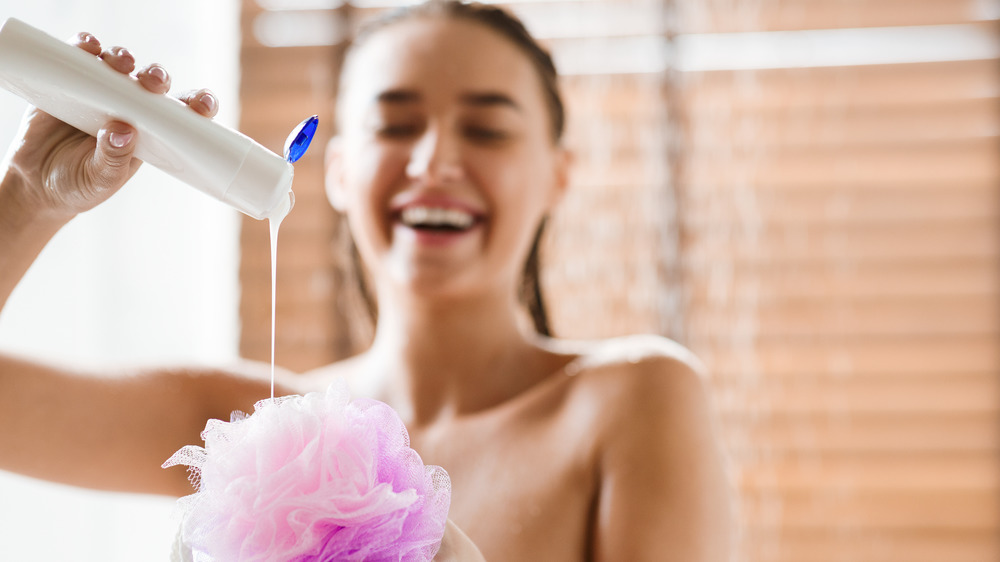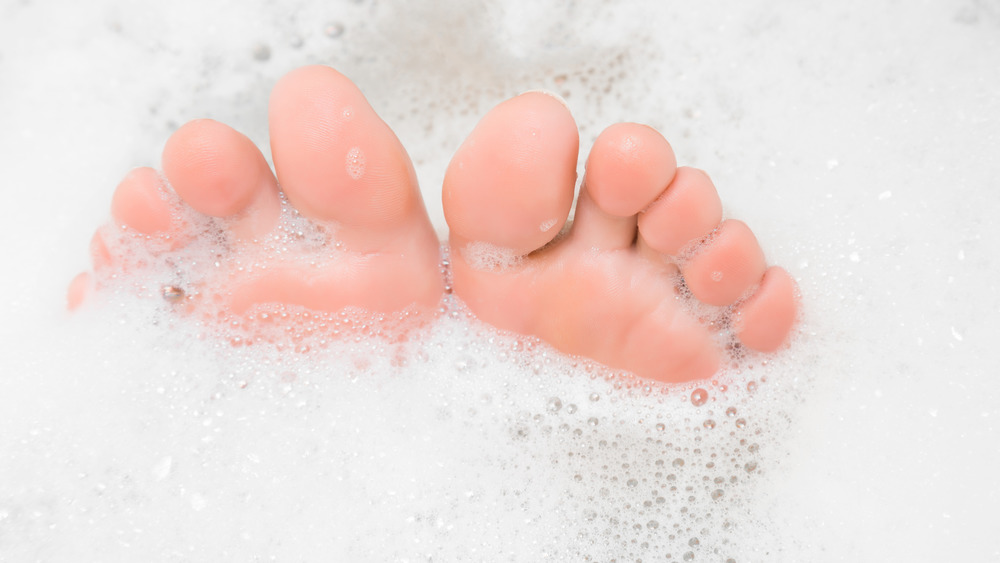The One Body Part That People Aren't Washing Enough
When you hop in the shower, whether it's for a quick scrub-up or a 30-minute steam-room experience, it's unlikely that you would forget to wash your hair or armpits. But your feet? That's another matter. After all, they have all that sudsy water washing over them anyway, so good enough, right? Well, think again. According to foot experts, our feet should definitely be getting more TLC than most of us probably give them.
First of all, there's the issue of gag-inducing foot odor to consider. Infectious disease expert Dr. Amesh A. Adalja, senior scholar at the Johns Hopkins Center for Health Security, told Self, "Your feet are covered with bacteria, just like the rest of your skin." This bacteria, just like its cousins living under your arms, is intent on offending your nose. "Bacteria [like] to feed on waste products that come out of your sweat glands, and they produce odor as they build up," according to Dr. Robert K. Lee, chief of podiatric foot and ankle surgery at UCLA Medical Center, Santa Monica.
Wash and dry your feet thoroughly to prevent infection
Aside from preventing harsh odor, practicing good foot hygiene is also important to ward off infections. The Institute for Preventative Foot Health recommends inspecting each foot daily for potential problems like bumps, blisters, bruises, sores, and cuts — even tiny ones. Bacteria, fungi, and viruses can enter the body through cracked skin, leading to a staph infection, athlete's foot, or plantar warts. That's why experts say it's important to wash and dry feet thoroughly —especially between the toes — every day. This becomes especially important after you have been barefoot or after hard workouts when your feet can collect lots of sweat.
Practicing proper foot care doesn't guarantee that you'll never run into problems, but it does increase your chances of keeping your feet healthy and happy. As Dr. Lee told Self, "The more regularly you're washing your feet, the less likely that viruses, fungus, and bacteria are going to infect your skin."


